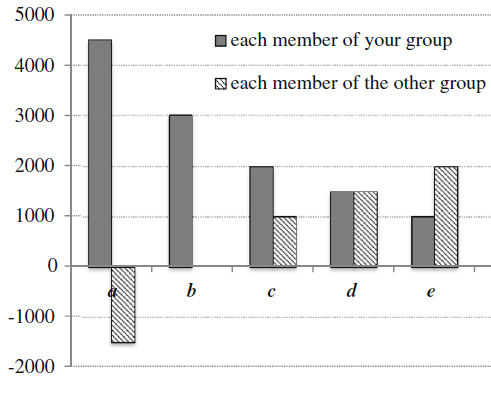This paper examines the relationship between norm enforcement and ingroup
favouritism behaviour. Using a new two-stage allocation experiment with
punishments, we investigate whether in-group favouritism is considered as a social norm in itself or as a violation of a different norm, such as egalitarian norm. We find that which norm of behaviour is enforced depends on who the punisher is. If the punishers belong to the in-group, in-group favouritism is considered a norm and it does not get punished. If the punishers belong to the out-group, in-group favouritism is frequently punished. If the punishers belong to no group and merely observe in-group favouritism (the third-party), they do not seem to care sufficiently to be willing to punish this behaviour. Our results shed a new light on the effectiveness of altruistic norm enforcement when group identities are taken into account and help to explain why in-group favouritism is widespread across societies.
Coauthored with Donna Harris, Benedikt Herrmann and Andreas Kontoleon.
Published in Experimental Economics (2015). Link to paper.
